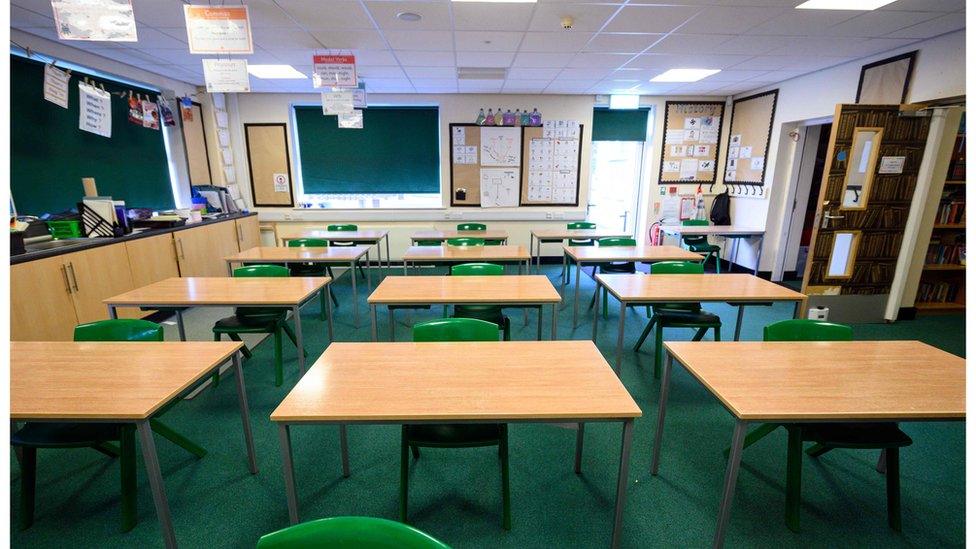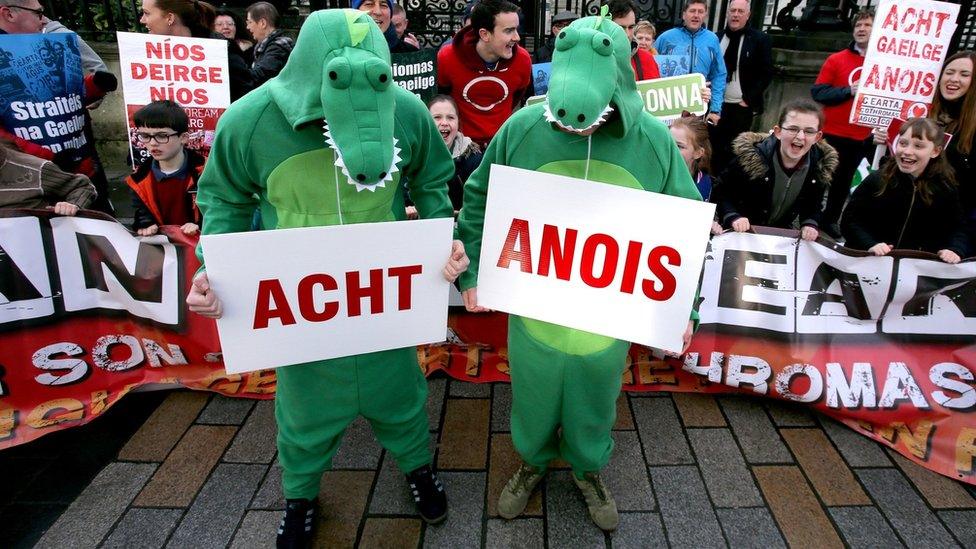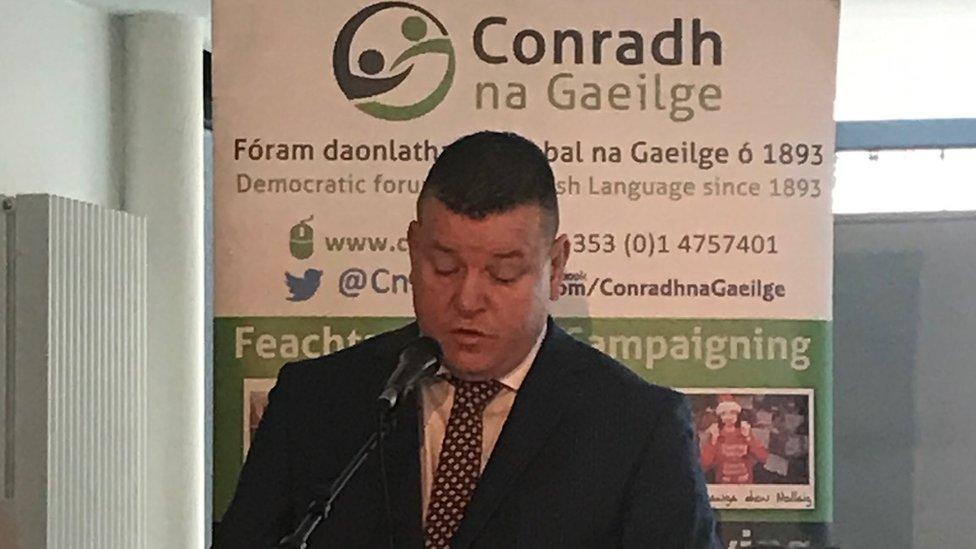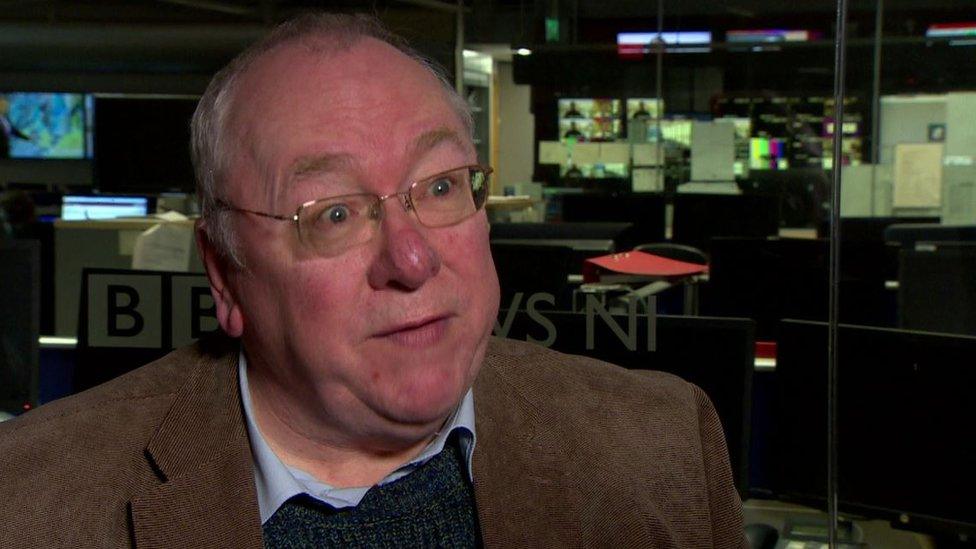Report calls for more Irish-speaking teachers
- Published

There should be more education in Irish and there is a need to train more Irish-speaking teachers, a report says.
Language experts from the Council of Europe (CoE) also said Ulster-Scots "continues to have a weak presence in public life" in NI.
Their report is based on evidence, including a visit to Northern Ireland.
However, that visit was before draft provisions for language laws were included in the New Decade, New Approach agreement in January 2020.
Those proposals include the appointment of an Irish language commissioner and a commissioner for what is described as the "Ulster Scots/Ulster British tradition".
Irish language activists have expressed concerns over elements of the potential legislation.
However, some of the recommendations made by the Committee of Experts - such as the use of Irish in the courts and Irish translation in the assembly - should be met under the new laws when they are enacted.
The committee of language experts is appointed by the Council of Europe to monitor the United Kingdom's compliance with the European Charter for Regional or Minority Languages.

Irish language supporters protest at Stormont
Their latest report was presented to the Council of Ministers on 1 July.
It said that the "public use and promotion of Irish in Northern Ireland continues to be highly politicised".
However, they also drew attention to the rising numbers of pupils being taught in Irish.
"In education, Irish is a medium of instruction in pre-school, primary and secondary education," their report said.
"As the number of pupils is growing annually, the need to plan more strategically for the projected demand remains.
"This concerns, in particular, the training of teachers able to teach subjects in Irish at pre-school and secondary levels, taking into account the particular educational needs in immersion education."
A shortage of suitably qualified teachers has previously been identified as a concern by Irish-medium schools.
The experts' report also called for more Irish-medium schools, more teaching of Irish in universities and "the teaching of the history and culture reflected by Irish".
'Negative and stereotyped'
They said the BBC should broadcast more radio and television programmes in Irish.
On Ulster-Scots, the experts said that despite the development of some resources for primary school pupils, "it is not taught in mainstream education and there are no teachers of it".
They said Ulster-Scots speakers had also criticised the lack of a government strategy to promote the language in education and other areas of public life.
"Representatives of the speakers complained that Ulster-Scots is often presented in a very negative and stereotyped way in the media, particularly the print media," the report said.
"Moreover, the Ulster-Scots representatives feel they are not sufficiently involved by the authorities in developing language policies, especially at local level."
In response to the CoE report, Irish language advocate Janet Muller said that the measures for Irish in the New Decade, New Approach , externaldeal were "weak".
"It is highly significant that both the Committee of Experts and the Committee of Ministers recommend that Westminster enact the Irish language act in order to remove the language from the political arena here, where it cannot thrive as it should," she said.
During their visit to Northern Ireland the experts met Ms Muller and the language organisation Pobal as well as government representatives, civil servants and Ulster-Scots groups.
- Published23 January 2020

- Published7 January 2020
